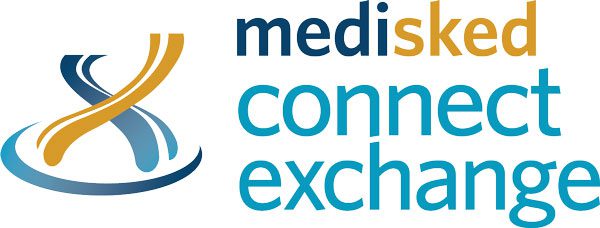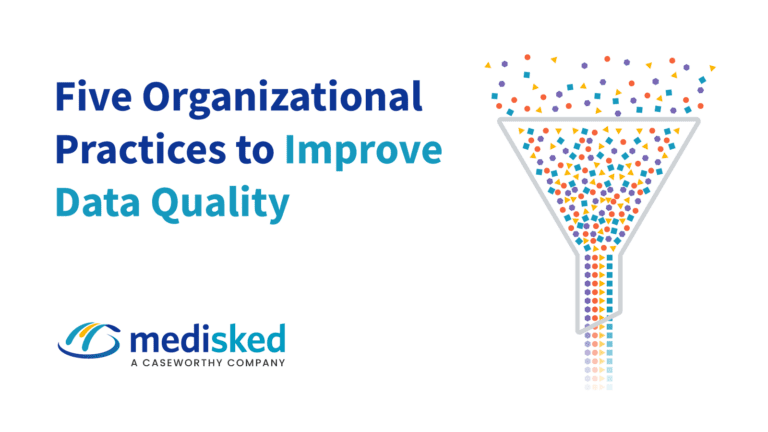MediSked Solutions Owner Stephanie Crouch applies her experience working in state government to summarize the actions CMS has taken to address COVID-19 in support of Home and Community Based Services (HCBS), as well as review the examples of Nebraska and North Carolina and their responses within their state plan and waiver programs.
The Centers for Medicare & Medicaid Services (CMS) has taken several actions to support states in response to the COVID-19 pandemic. For up to date information specific to CMS please visit the CMS News Room. The administration has issued:
- Key Recommendations to Nursing Homes, State and Local Governments
- Approval of 1135 and 1915(c) Appendix K Waivers
- Expanded Coverage of Telehealth Services
- Provided Flexibilities for Rural Health Care Substance Use Disorder
- Maintained Updates to Medicaid and CHIP FAQs
Taking a closer look at Home and Community Based Services, CMS has supported states by creating a toolkit which streamlines the submission of 1135 and 1915(c) Appendix K Waivers.
- An 1135 waiver allows the state to waive federal laws in the event of an emergency, which ensures the state can maintain health care services throughout the duration of an emergency. To streamline the 1135 waiver request and approval process, CMS has issued several blanket waivers which do not require the state to submit a request for approval.
- 1915(c) Appendix K may be utilized by states as an emergency amendment to 1915 (c) Home and Community Based Waivers. Appendix K allows states greater flexibility in how services are rendered. States must submit an Appendix K for each waiver they are requesting be amended for the duration of the emergency.
Spotlight on the States
Across the country, states have made waiver adjustments to provide the flexibility needed so that service delivery systems remain intact. As of April 13, 2020, CMS has approved fifty (50) emergency waivers, twenty-eight (28) state amendments, nine (9) COVID-19 Medicaid Disaster Amendments, and the first CHIP COVID-19 related Disaster Amendment – all in record time.
We looked at Nebraska and North Carolina for examples of the way states are responding.
Spotlight on Nebraska
1135 Waiver: Nebraska’s 1135 Waiver was approved by CMS on April 2, 2020. There are six main ways that the 1135 Waiver affects Nebraska’s Medicaid program.
- Provide flexibility to waive certain provider enrollment criteria, such as revalidations and site visits, through the public health emergency.
- Provide flexibility to waive the annual renewal of Pre-Admission Screening and Annual Resident Review (PASRR) Levels 1 and 2 for nursing facility residents for 30 days and provide other flexibility around these requirements.
- Extend the time beneficiaries are allotted to request state fair hearings, as well as allow Nebraska Medicaid flexibility in scheduling hearings and issuing state fair hearing decisions.
- Allow facilities flexibility to evacuate their patients and provide care in alternative settings if needed.
- Provide flexibility regarding the requirements around public notices and tribal consultation for disaster relief state plan amendments and waivers.
- Provide flexibility to waive prior authorizations for services for Nebraska Medicaid’s fee-for-service beneficiaries, when clinically appropriate.
Appendix K: Nebraska has four 1915 (c) Waivers. An Appendix K was submitted to CMS on March 31, 2020 for all of these waivers.
- Aged & Disabled Waiver
- Comprehensive Developmental Disabilities Waiver
- Developmental Disabilities Adult Day Waiver
- Traumatic Brain Injury Waiver
For the Aged & Disabled Waiver and Traumatic Brain Injury Waivers, there are six notable changes:
- Allowing for care to be provided in alternative settings.
- Providing for additional respite days for certain recipients of services.
- Modifying or waiving Level of Care assessment requirements as appropriate.
- Allowing for monthly contacts to occur remotely (phone or other electronic means).
- Limiting non-essential transportation for assisted living residents.
- Relaxing criteria for closing cases while the appendix is in effect.
Spotlight on North Carolina
North Carolina has been incredibly engaged in making policy changes to ensure that health care can continue to be provided to residents of the state. The state has held weekly teleconferences for providers, beneficiaries and families to receive up to date information on policies as they are updated and deployed. In addition to the 1135 Waiver and Appendix K, the state has also submitted a request for an emergency 1115 Demonstration Project.
1135 Waiver: North Carolina’s 1135 Waiver was submitted to CMS on March 17, 2020 and approved on March 23, 2020. The 1135 Waiver allows the state greater flexibility for:
- Provider Enrollment
- Provision of Services in Alternative Settings
- Suspension of Pre-Admission Screening and Annual Resident Review (PASRR) Level I and Level II Assessments for 30 days
- State Fair Hearing Requests and Appeal Timelines
- Temporarily suspending Medicaid fee-for-service prior authorization requirements. Section 1135(b)(1)(C) allows for a waiver or modification of pre-approval requirements, including prior authorization processes required under the State Plan for select benefits.
Appendix K: North Carolina has four 1915(c) waivers. An Appendix K was submitted on March 17, 2020 for each of the waivers. North Carolina received approval for all four of the amendments on April 6, 2020.
- Innovations
- Traumatic Brain Injury Waiver
- Community Alternative Program for Disabled Adults
- Community Alternative Program for Children
The chart at this link summarizes each of the Disaster Waiver Flexibilities that were requested in Appendix K.
1115 Demonstration Project: On March 27, 2020 North Carolina requested the approval of an 1115 Demonstration Project which would allow the state to:
- Expand coverage for uninsured individuals related to COVID-19.
- Establish a COVID-19 Disaster Relief Fund.
- Provide temporary shelter for homeless people with a COVID-19 diagnosis, known COVID-19 exposure, or who live in hotspots to reduce the need for hospital beds.
- Offer nutrition support to allow vulnerable Medicaid beneficiaries to comply with social distancing and home orders.
- Provide more flexibility for beneficiaries receiving home care.
- Ensure appropriate behavioral health care needs can be met.
- Streamline eligibility and enrollment.
CMS and the states continue to take actions in response to the ongoing COVID-19 situation to ensure that Home and Community Based Services have the flexibility needed to adapt to the environment. The administration has expeditiously dispersed federal disaster resource information which has allowed states to react to the pandemic quickly. As the emergency unfolds, states will likely submit additional requests like the North Carolina 1115 Demonstration Project to receive additional federal support.








